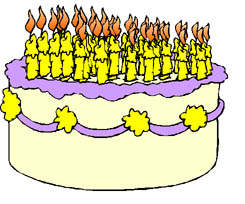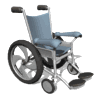Good morning daddy. Remember me? I remember you. Not only today (on your birthday) but every birthday and everyday. We’ve had absolutely no contact for the last 11 years and I have absolutely no desire to contact you, see you or hear from you . . . still . . . I remember you.
Did you have a good birthday today? Did your new family spoil you like we used to do? Did you get presents and a cake? Do you remember the 50th surprise birthday party we had for you? You were speechless and did not eat for three days afterwards because you could not believe that we could arrange an entire party without you even being one bit suspicious? You who always made sure you were in control of everything all the time?
Do you remember us, daddy?
As I go through life, memories of you intrude my thoughts. I try to avoid saying “my dad used to say . . .” I often want to, but stop myself because I don’t want people to think that I idolise you or think that you’re my hero.
You stopped being my hero when, at the age of six I wanted to sit on your lap and you pushed me away saying “don’t be foolish. You’re a big girl now” and I walked away feeling rejected and alone. Demonstrating affection did not come naturally to mom because of the way she was raised, so I could not turn to mom for solace.
You stopped being my hero when, one day we were driving home after you picked me up from school. I was in Sub A (Grade 1) at the time, and you asked me what I wanted to be when I grow up. I very proudly said I wanted to be a doctor (medical doctor) and you said “forget it. Being a doctor is not as glamorous as it appears to be. It’s a thankless job. You have to work long hours, on your feet all night for a little money. In any case, because of your disability, you will not be able to be on your feet for so long anyway so forget about being a doctor.”
Later, when you asked me what else I wanted to be and I said a pilot. Again, you said “forget it. With your disability, you will not be able to climb in and out of the cockpit”. “You will have to be a typist or a secretary like your mother”.
When you came to visit me in hospital or when you and mom left me to stay with grandma while you and mom went out, you never said goodbye. You would always “disappear” and I would be left wondering what happened to you? Would you come back? To this day, I live with separation anxiety issues. I still find it very hard to say good bye to anyone.
You see daddy – you destroyed my dreams very early on in my life. Still I remember you.
You ruled our house like it was a Nazi Concentration camp with all your rules and regulations. It was your way or the highway but still, I remember you. I lived in fear of you all my life. Just the threat of a beating with your belt, was enough to “make me obey”, but still, I remember you.
To the outside world, you were the perfect father. To me, you were always an “absent” father i.e. you gave me everything materially but emotionally you were always absent and distant. You blamed everything on your job. Your job (as a Paramedic) made you cold and hard to enable you to deal with the medical emergencies you had to deal with everyday. That was always your excuse. That was your excuse why you could not allow yourself to get “emotional”. It was the excuse mom had to live with when she accused you of not being able to show affection and love. You asked mom to teach you how to love, but how do you teach someone to love when they made up their mind so long ago that they would not show emotion and affection? After 38 years of marriage (having known you for 44 years) mom finally gave up and divorced you. For this reason we have chosen not to have any contact with you for the last 11 years (since the divorce).
Still . . . I remember you . . .
You live in my heart, you intrude my thoughts (even when I don’t want you to), I’m more like you than I’ve ever wanted to admit, and more than you will ever know, so I remember you . . .
You used to say:
• [When crossing the road] – look left, look right, look left again. Cross the road quickly. Don’t dawdle.
• [when dropping a sweet paper or tissue] – who do you think is going to pick that up? Pick it up and put it in the bin.
• [when leaving dishes on the table after a meal] who is your servant around here? Are those dishes going to walk to the sink and wash themselves? [if time did not permit me to wash the dishes immediately you would say] put water in the dish to make it easier to wash later.
• Always say “please” and “thank you”. It does not cost you anything.
• [on the days when I did not smile] – what do you have to look so miserable about? The world does not owe you anything. SMILE!
• Do unto others as you would have them do unto you [treat people with respect and they will respect you].
• Honour your father and mother. Even if your parent or both parents are alcoholics, they will always be your parents and you have to respect them irrespective of who or what they are.
• Time management: Always leave home one hour before your appointment to make allowances for delays along the way. You car could break down, you could get a flat tyre, be involved in an accident etc. There is no excuse for being late.
• Always work according to a system: If you check your car’s oil and water every week, you will never lose track of when last you checked and topped up. [Message: consistency eliminates problems later]
• Planning – always plan before you start something, don’t jump in feet first. Before you get into your car, plan your route, plan what you are going to do when you reach your destination, and plan what you are going to do on your way back so you are not a nuisance to other drivers on the road because you don’t know what you’re doing or where you are going.
• Answering the telephone – always have a pen and piece of paper in your hand when you answer the phone. While greeting the person on the phone, write down the date, time of call and person’s name so even if you forget the message, at least you will be able to say who called and what time they called. Also: if you are not able to give the message on the same day, at least you will be able to say when the person called.
• Driving – when driving in the rain, never put your foot on the brake pedal when driving over the white/yellow road markings in the road. Your car will go into a skid because of the oil and water mixed on the road surface and you could lose control of the car.
• Never drive fast through a puddle of water when it rains. Drive slowly through the water if you cannot go around the puddle. You don’t know what lies beneath the puddle.
• In everything you do, make sure you do it right, first time, every time. It wastes time to go back and have to do it again and time is money. Don’t waste your time or anybody else’s time.
• If you use the last of something (tea, coffee, sugar, toilet paper etc) replace it. If you can’t replace it, TELL SOMEONE. Don’t just walk away.
• When you heard someone complain about their job you used to say: someone has to do it.
• It never rains, it pours
• Trouble always comes in three’s
• There’s always two sides to every story (even though you never gave us a chance to tell you our side)
You see daddy, no matter where I go or what I do, I still remember you.
Do you remember me?
Hope you had a wonderful birthday today with your new family.



